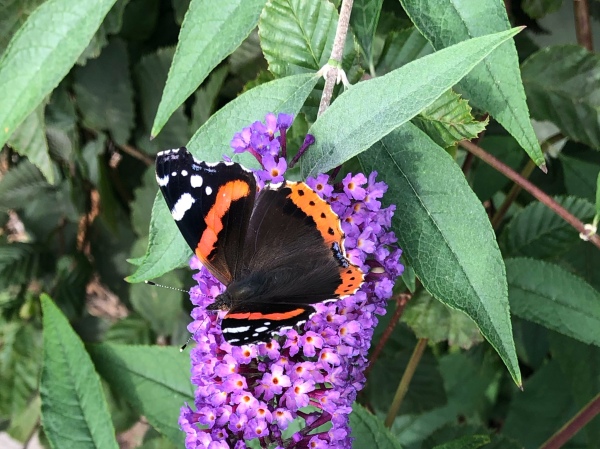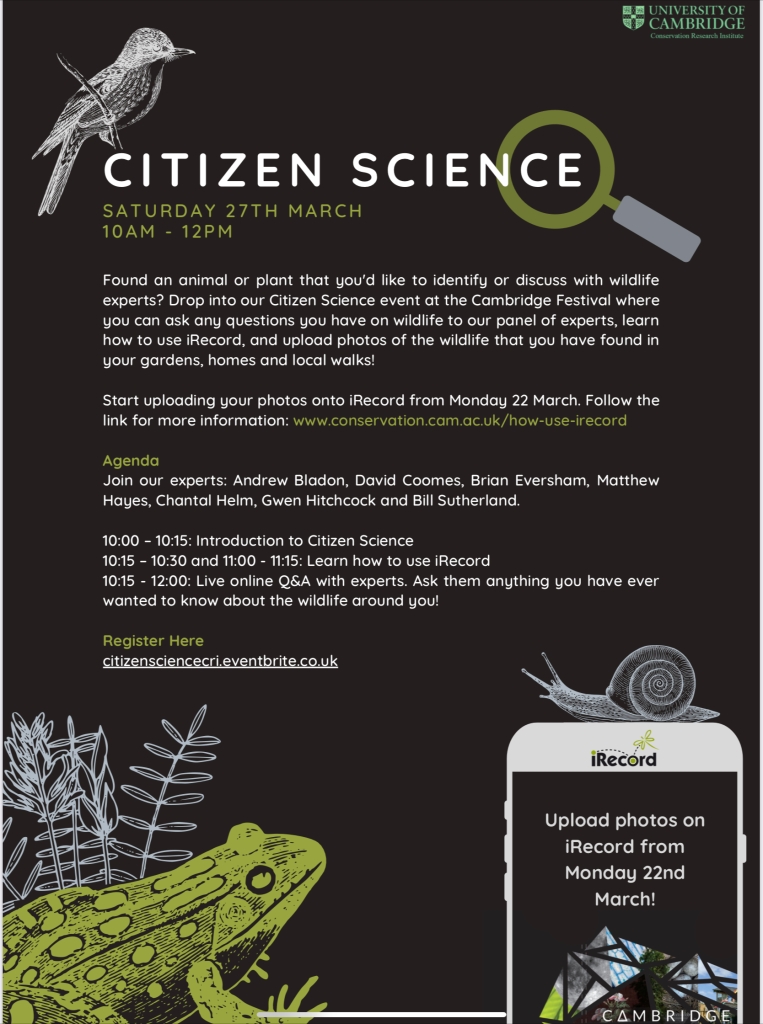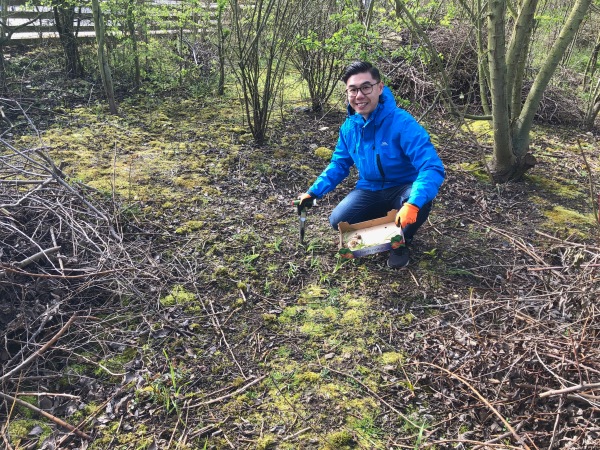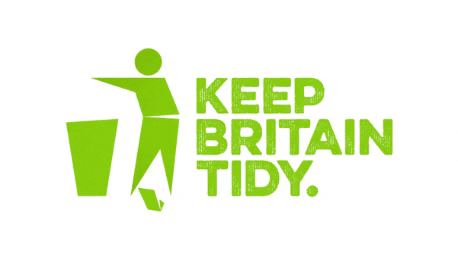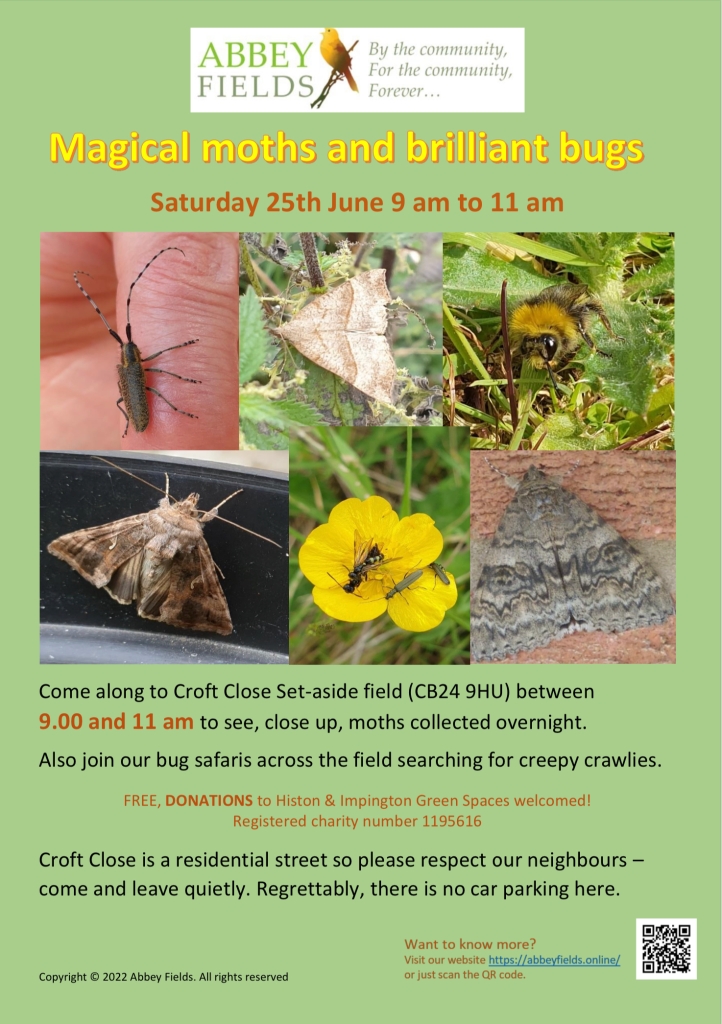
Tips from the Wildlife Trusts to Help in the Heat
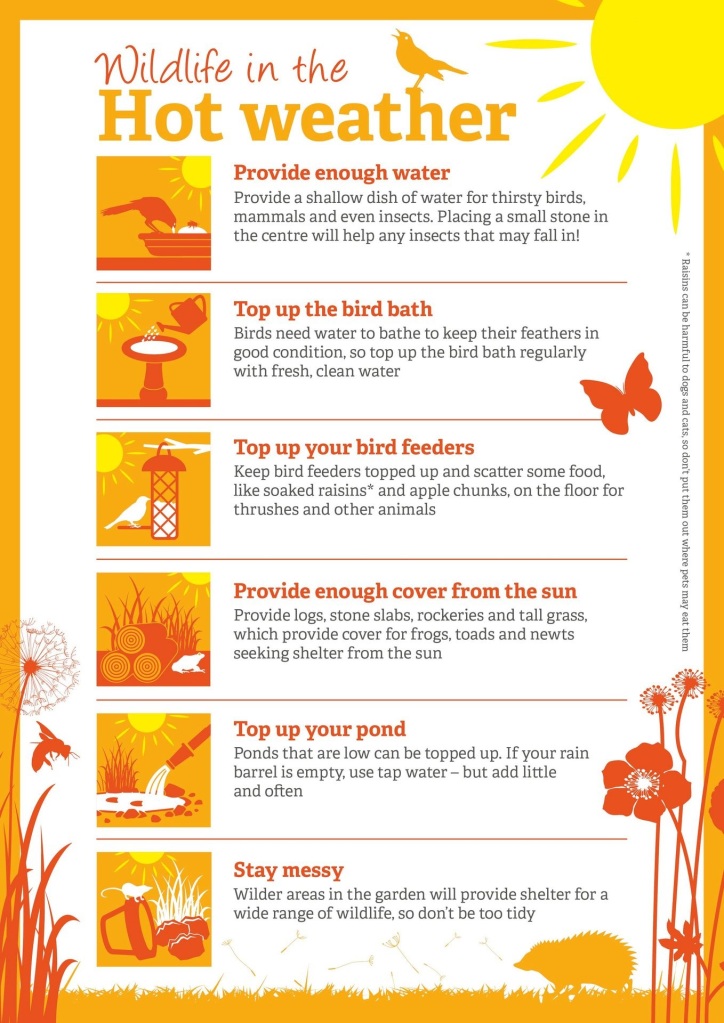
Image source: Wildlife Trusts
Also see post from a few years ago Help for Hot Birds and Other Wildlife
Helping Wildlife in Autumn, Leave the Leaves :)

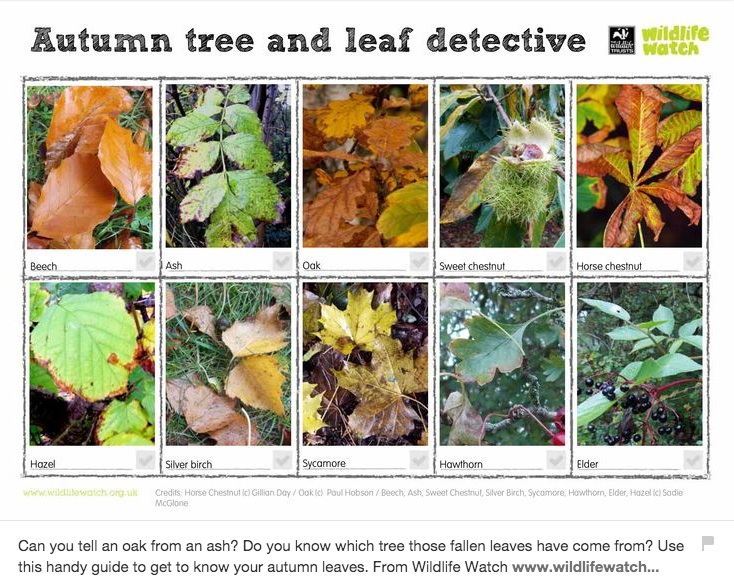
Below is a compilation of information about how to help our local wildlife in Autumn.
From Gardeners’ World Website:
Leaves
Remove leaves from paths or lawns but transfer them to a corner or beneath a hedge, where hedgehogs and other animals can crawl for shelter.
Ponds
Male frogs often spend winter in the muddy depths of ponds, breathing through their skin. But if the pond freezes over, gases caused by decaying plant material can get trapped and poison them. Remove debris from ponds now, and float a tennis or golf ball on the surface to prevent ice from sealing it.
Twigs
Put bundles of twigs at the back of borders, or in a plant pot on its side, where invertebrates and small mammals can shelter.
Borders
Leave herbaceous borders intact in winter so decaying plants can act as a ‘winter duvet’ for small mammals and insects. Clumps of ornamental grasses…
View original post 322 more words
Big Butterfly Count, let’s get OP on the map 🦋
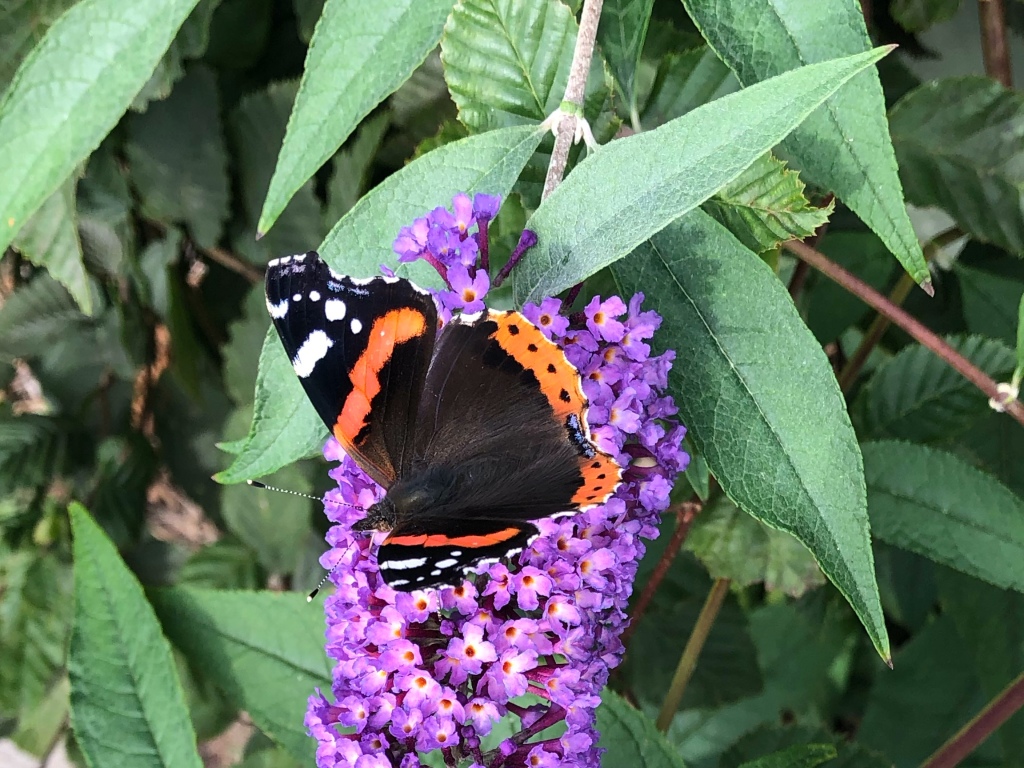
As Covid continues to rise, unfortunately it’s not possible to arrange activities. We hope to be able to start again soon. There are still plenty of things you can do to help our wildlife, including taking part in Citizen Science projects.
Butterfly Conservation’s Big Butterfly Count started on Friday last week, it runs until 8 August, so there’s plenty of time to spend 15 minutes to count what you see. Even if you don’t see any butterflies, it’s important to submit the results of your time spent looking.
From Butterfly Conservation’s website: “The Big Butterfly Count is a UK-wide survey aimed at helping us assess the health of our environment simply by counting the amount and type of butterflies (and some day-flying moths) we see.”
It’s easy to take part and they provide all the information you need, including the downloadable ID sheet below, and there’s a free app available too.
Click here for all the resources you need to take part: https://bigbutterflycount.butterfly-conservation.org
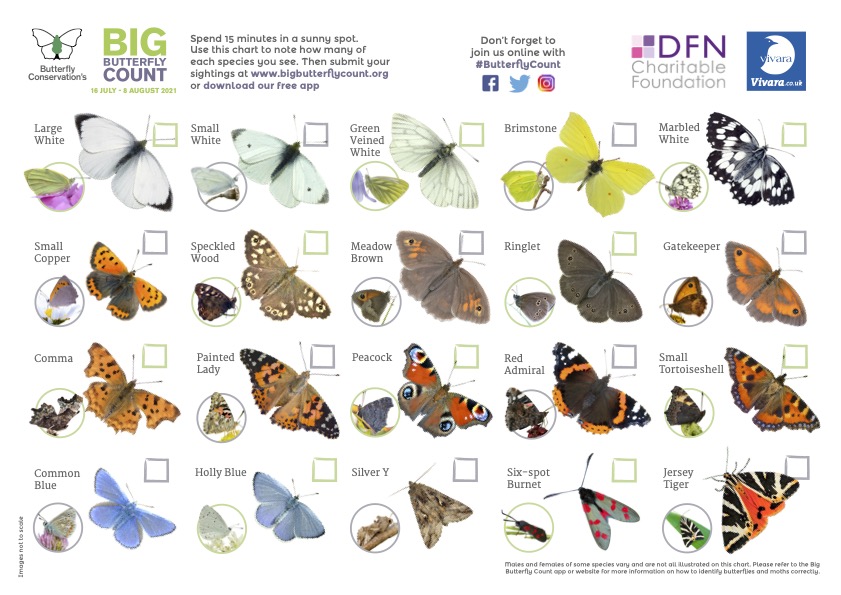
Looking for Lizards 2021
As lockdown eases and the weather improves, we’re finally able to start thinking about arranging some events. We’re looking for volunteers to help us look for lizards. Mario from Cambridgeshire and Peterborough Amphibian and Reptile Group (CPARG) is leading surveys to look for Orchard Park’s viviparous lizards that were translocated to Bramblefields Local Nature Reserve because their home in OP is being built on. Mario needs more people to help. He’s skilled and knowledgeable and will provide all necessary training.
Due to lizards requiring warm weather before they can move around, they need the sun to warm up their muscles, the surveys will be weather dependent. We will post times and dates here as soon as they’re confirmed.
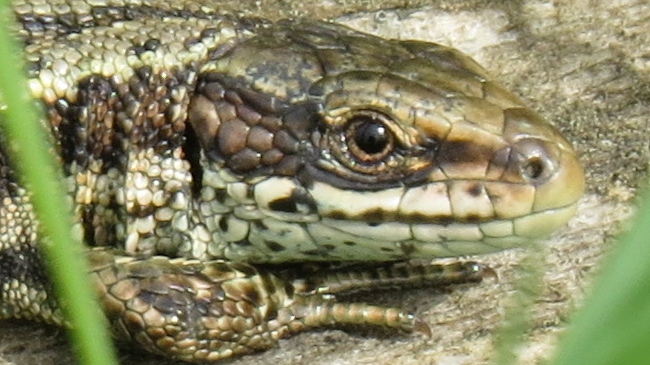
Monitoring will be from May to September, and ideally anyone wishing to volunteer would be able to join weekly, or at least every other week.
This activity isn’t suitable for young children as the lizards are easily disturbed by people moving around, those aged 12+ are welcome, children must be accompanied by an adult.
Bramblefields LNR is wheelchair accessible, though the lizard basking site is not.
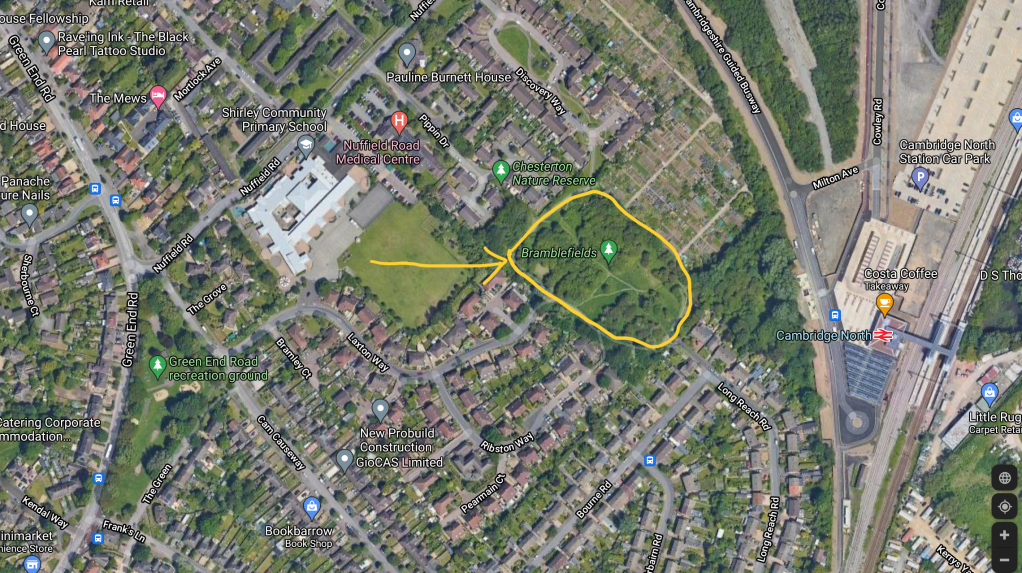
Please contact Mario and/or OPWP for details, thank you.
Mario: 07512 268427 Instagram: @shimboviswild Twitter: @MarioShimbov or opwildlife@gmail.com
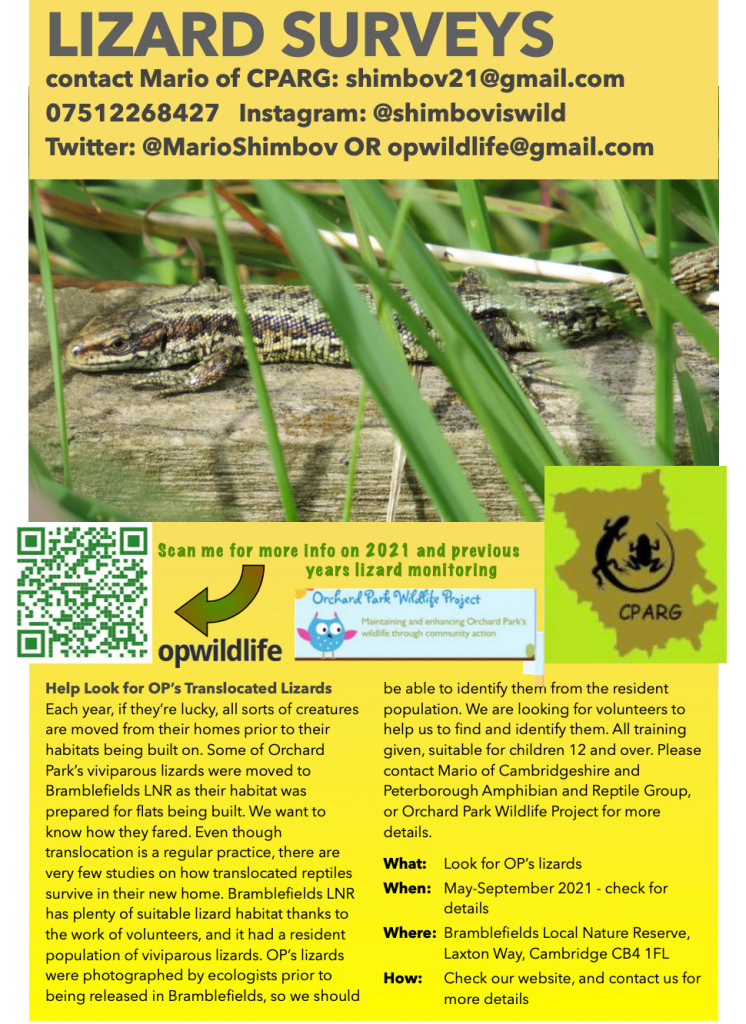
For more information on previous monitoring and OP’s lizards see below and: http://lizards
Happening Today
FREE Wildlife activities for lockdown

If you’re looking for something free to do with the kids, look no further
RSPB Big Garden Birdwatch 29 – 31 January
From the RSPB website
“Join thousands of people taking part to see the drama unfold on your doorstep.
We might not be able to get together with loved ones at the moment, but you can make plans with friends and family to take part in the world’s largest wildlife survey, all from the comfort of your own homes.”
Click here to get involved
From the University of Derby a MOOC (massive open online course) on Nature Connectedness
They have just introduced a new, free online short course on #NatureConnectedness!
Join their course to gain an understanding of why #Nature connectedness matters for human and nature’s #Wellbeing and find out how to improve your nature connectedness. Register now: https://buff.ly/39IcG8J
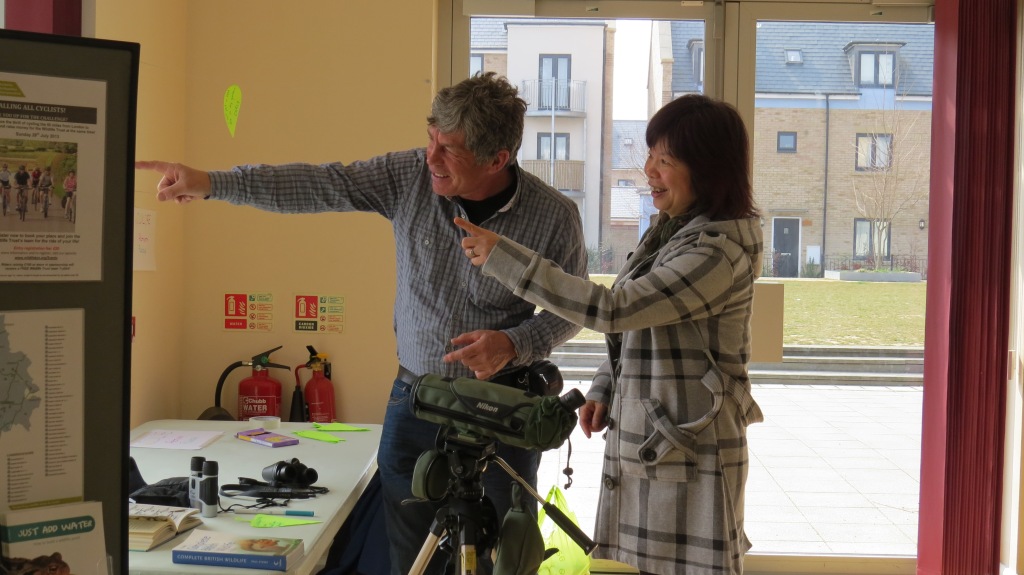
Wildlife in Lockdown
It’s been a strange time these last few months. The media suggests many more people have been taking an interest in their local wildlife given the extra time spent at home. I sincerely hope this interest is maintained and translates into action to help our wildlife and habitats.
There’s been a bit of action in a small OP garden, centred around a little bowl of water. I called the video ‘Just Add Water’ to show what can be attracted with very little effort – it shows how important such a seemingly simple action can be to our local wildlife.
The Wildflower Bank was looking very colourful a couple of weeks ago too. If you haven’t had a look at the bank yet, maybe stop and take in the variety of plants there and the invertebrates it attracts. Don’t forget to check the sign near the school entrance to help you with plant ID and some of the invertebrates we’ve recorded there.
Here’s a video showing the length of the bank. A few flowering plants have been labelled. Stop the video when you see the label to see if you can ID the plants mentioned.
Native Bluebells planted, thanks to On the Verge and OPCC – please tread carefully
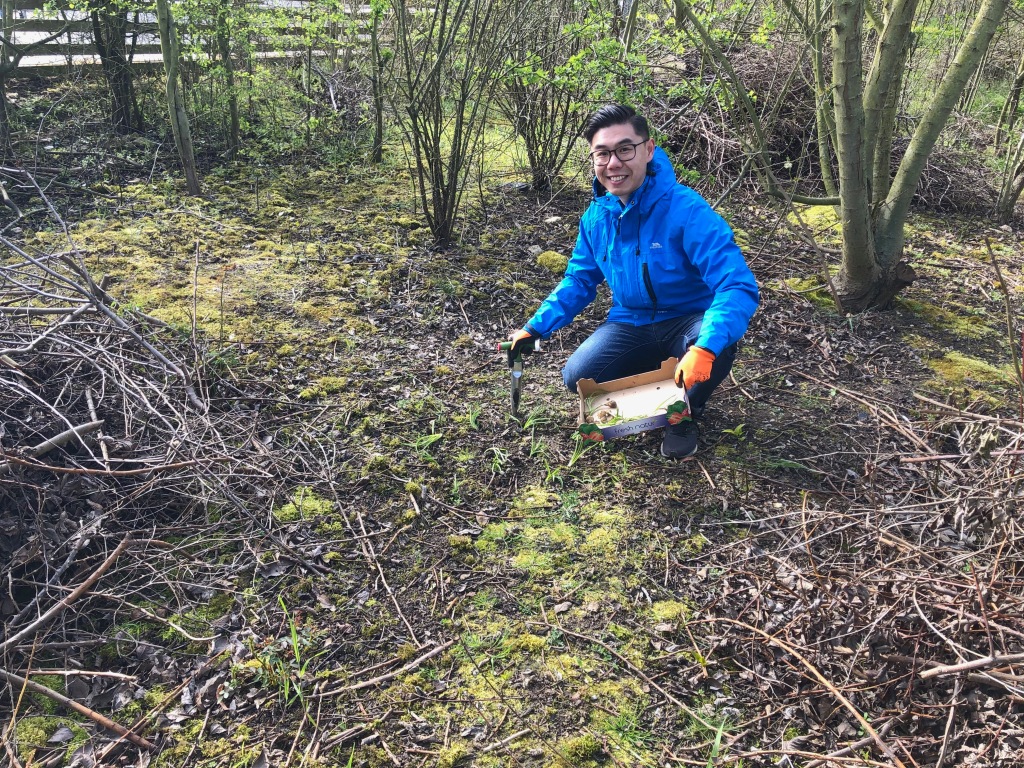
On Saturday, thanks to On the Verge Cambridge and Orchard Park Community Council, native bluebells were planted in the Wildlife Area. On the Verge, who kindly provided the plants free of charge, is a voluntary group set up to promote wildflowers and pollinating plants around Cambridge. They aim to “provide an abundance of food sources for pollinating insects which are in catastrophic decline. By providing joined-up corridors of food for pollinators we can help them feed without having to fly long distances. We can make the city of Cambridge welcoming to pollinators through simply planting what they need. Increasing plant biodiversity in our city can have a positive impact on the insect population immediately.” (Source: On The Verge Website).
Thanks very much to Andrew Chan, Chair of OPCC for planting them, obviously we were unable to do this as a group activity in the current circumstances.
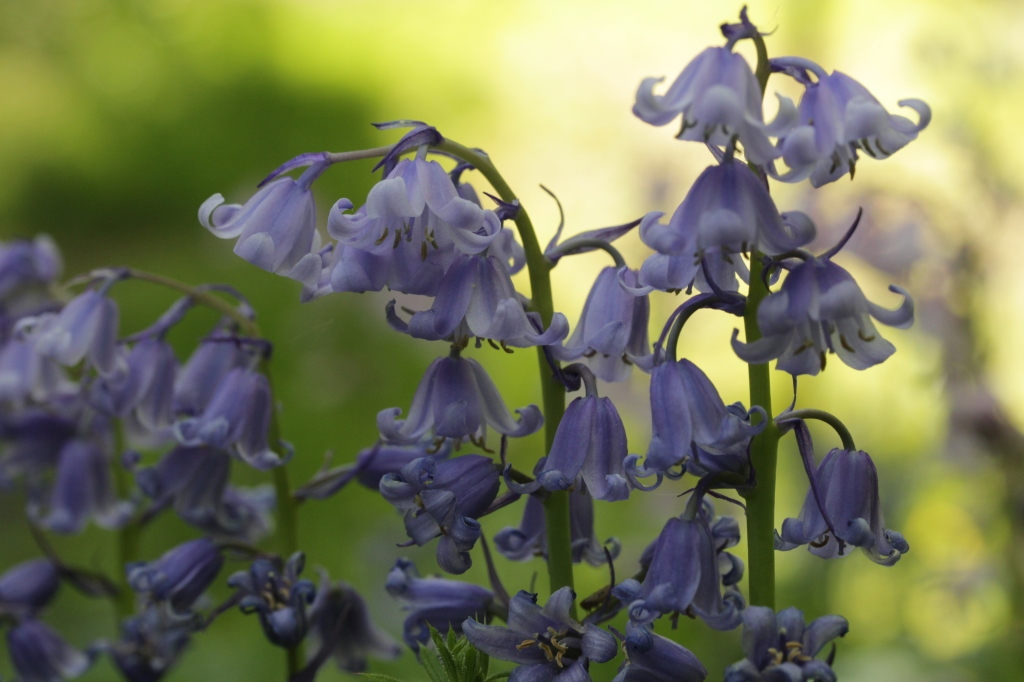
The Woodland Trust say “enchanting and iconic, bluebells are a favourite with the fairies and a sure sign spring is in full swing.
Value to wildlife
Many insects reap the benefits of bluebells which flower earlier than many other plants. Woodland butterflies, bees and hoverflies all feed on their nectar. Bees can ‘steal’ the nectar from bluebells by biting a hole in the bottom of the flower, reaching the nectar without the need to pollinate the flower.
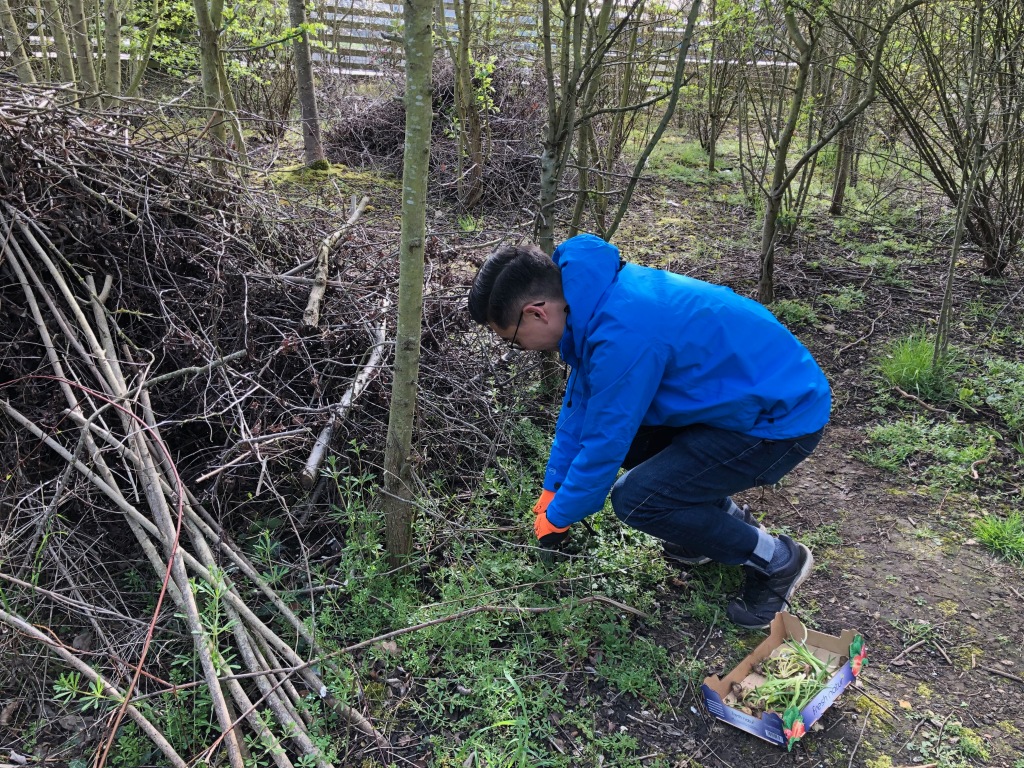
Bluebells are unmistakable bell-shaped perennial herbs. They actually spend the majority of their time underground as bulbs, emerging, often in droves, to flower from April onwards.
Leaves: are narrow, around 7mm to 25mm wide and 45cm in length. They are strap-shaped, smooth and hairless, with a pointed tip.
Flowers: usually deep violet-blue in colour, bluebells are bell-shaped with six petals and up-turned tips. These sweet-smelling flowers nod or droop to one side of the flowering stem (known as an inflorescence) and have creamy white-coloured pollen inside. Some bluebell flowers can be white or pink. Up to 20 flowers can grow on one inflorescence.
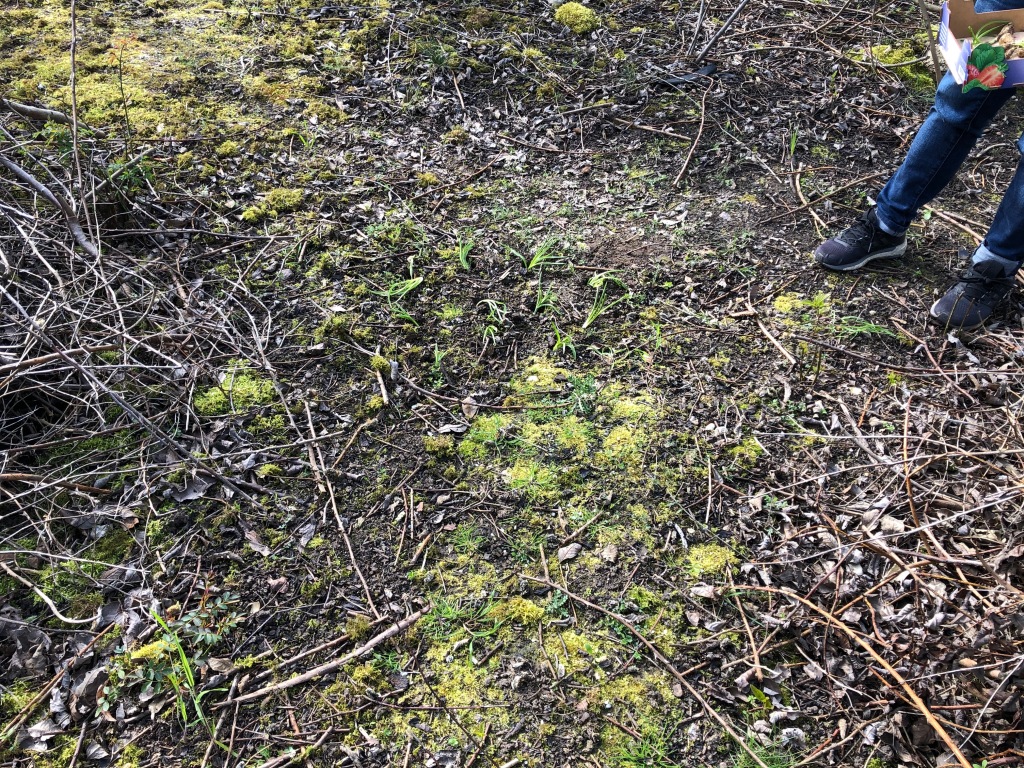
Not to be confused with: Spanish bluebell (Hyacinthoides hispanica), which is very similar in appearance to the British bluebell. However, Spanish bluebells grow upright, with the flowers all around the stem, not drooping to one side like the British bluebell. Hybrid bluebell (Hyacinthoides x massartiana) is a mix of the British and Spanish bluebell. It is often very similar in appearance to our native bluebell, but might threaten its existence by out-competing it and diluting the gene pool.” (source information above was taken directly from the Bluebell (Hyacinthoides non-scripta) page at The Woodland Trust).
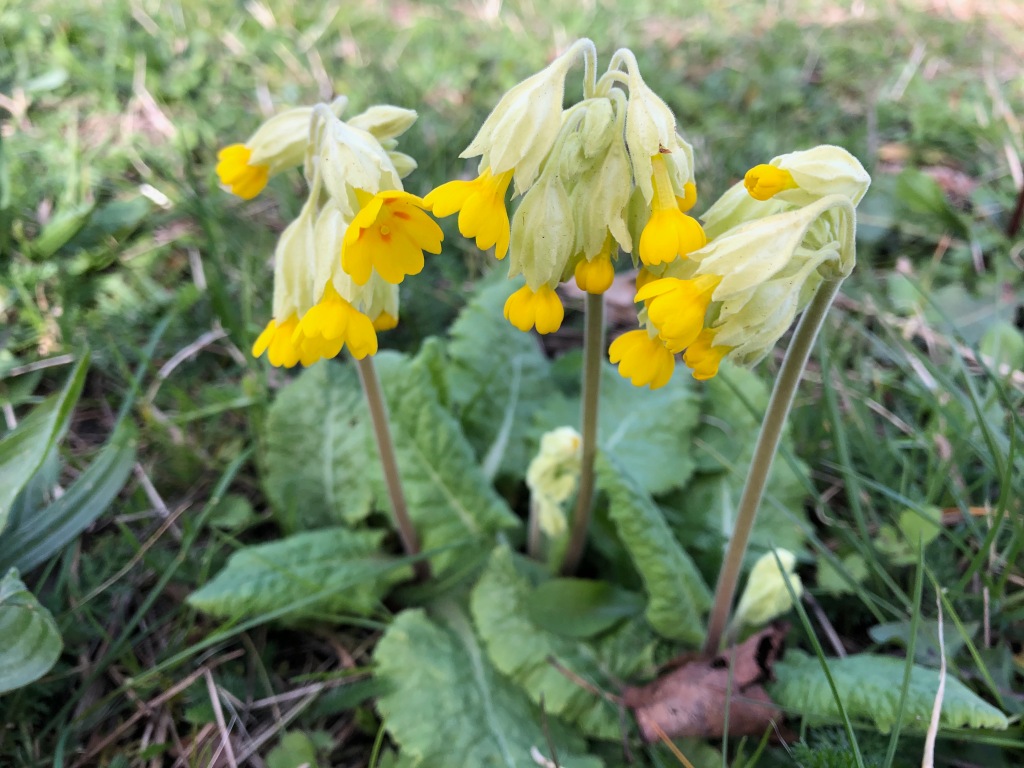
The Cowslips are coming out too, they’re quite prolific on the bank closest the Premier Inn. They’ll be out on the Wildflower Bank outside the school soon, along with the rest of the flowers. For more information on Cowslips click here.
It’s a difficult time for all at the moment, but if there’s any consolation it’s that we’re going into it in spring. I hope people will use it as an opportunity to watch wildlife – it’s good distraction, proven to be good for your wellbeing and could create a greater sense of nature connectedness, which in turn might increase actions people take to help wildlife.
Plant, Picnic, Pick, Skate and Create – a FREE fun event for all – now delayed until the Coronavirus is passed its peak….
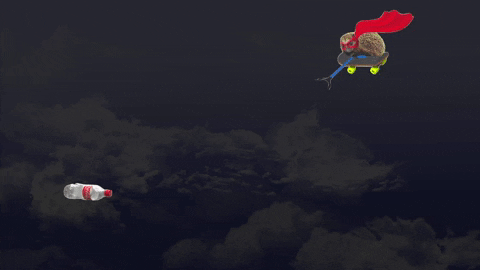
Orchard Park’s Hedgehog Hero collecting litter
We will reschedule once the Coronoavirus has passed its peak
What, well there’s all sorts, something for everyone, all ages and abilities welcome, the event will be held at an accessible ♿️ venue:
😀 Meet your neighbours
🧁 Eat nice food
☕️ Have a cuppa
🛹 Skate lesson with Shredder – Contact Max to book your session at: shredderskateschool@gmail.com (help with the litter pick and/or tree planting to qualify for your free lesson)
🚯 Litter pick
🌲 Plant a tree
🎨 Create art about our Orchard
🏍 Learn about Orchard Park’s Shared Electric Trike
🎥 Watch films about our local wildlife and how to help
🦔 Make a pledge to help our community and wildlife
When: Sunday 5 April 10-4
Cost: FREE £0.00
Where: Meet at Orchard Park Community Multi Function Room CB4 2GW, next to Orchard Park Skate Park and Wildlife Area – see map below

The day is being run in conjunction with Orchard Park Community Council, the National Lottery’s Community Fund as it celebrates its 25th year #CelebrateNationalLottery25, and is registered with Keep Britain Tidy as a Great British Spring Clean 2020 event #GBSpringClean. We’re grateful to The National Lottery #CelebrateNationalLottery25 and Orchard Park Community Council for providing funds to make this event happen.
We’ll provide some delicious cakes and refreshments, and you can bring extra food and drink to share. It’ll be a chance to meet and get to know your neighbours – an early Big Lunch – the official Eden Project Communities Big Lunch date is 6-7 June 2020 #THEBIGLUNCH
Help us cleanup Orchard Park, and plant a fruit tree or two in return for a free lesson with Max from Shredder Skate School, who strive to bring the joys of skateboarding and stunt scootering to anyone that wishes to start. Contact Max to book your
session at: shredderskateschool@gmail.com

Orchard Park’s Shared Electric Trike, funded by South Cambridgeshire’s District Council’s South Zero Carbon Communities Grant set up after declaring a Climate Emergency, will be used to move the collected litter and recycling around OP – and there’ll be a chance to learn more about the project and how you could use the trike.
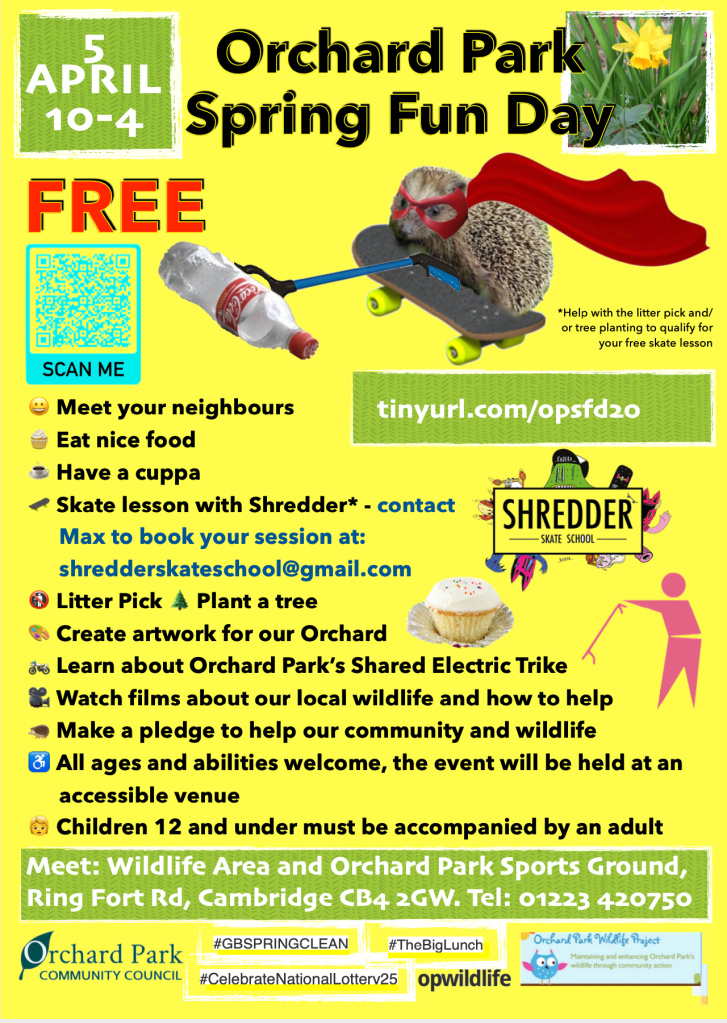
We’ll be creating art to make a sign for the Orchard, showing the importance of orchards for wildlife “A variety of flora and fauna can be supported by this environment – insects, birds, bees, bats, foxes and small mammals as well as wild flowers…. Orchards can protect bumblebees simply by creating a habitat for them to exist. Both honey bees and bumblebees are beneficial in pollinating orchards.”
🦠Coronoavirus – If you’re feeling unwell and experiencing any symptoms of the coronavirus – a cough, a high temperature, shortness of breath – please do not attend the event, stay at home and seek medical advice by calling the 111 coronavirus service. Facilities for hand washing – the Government’s focus to control the disease – are available at the Multi Use Room. Look out for the latest NHS advice. Of course if the latest advice suggests public events should be cancelled, we’ll postpone our event and reschedule.

